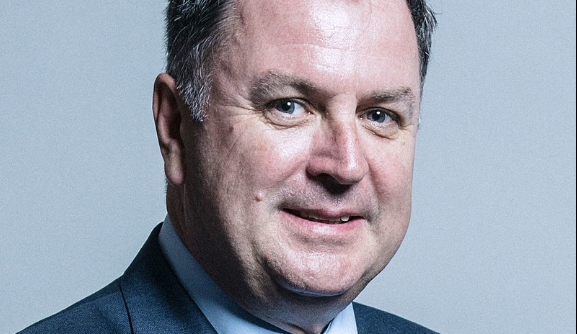Treasury Committee chief leads the crusade against fraudsters and financial crime

Conservative MP Mel Stride has been a busy man recently.
As chair of the Treasury Committee, a group of MPs that probe the government on their spending plans, he has been preoccupied with finding out whether Chancellor Rishi Sunak’s decision to swell the tax burden to its highest level in decades is a good idea.
“I do think he’s got a huge mountain to climb” to dig out enough fiscal room to slash taxes in the run up to the next election in 2024, he said.
Not the most upbeat assessments.
But, a more pressing subject that Stride is leading the charge against is economic crime and fraud.
“Some of it is like the wild west and it’s very difficult to grab hold of the problem and address it,” he tells City A.M. from the comforts of one of the more up-to-date parliamentary offices.
The Treasury Committee has made changing the rules of the game to strengthen defences against fraudsters to better prevent consumer harm one of its top priorities.
One area Stride has zeroed in on is the role social media and big tech firms play in providing a platform for fraudsters to strike.
Big tech firms have been accused of allowing financial crime to spread rapidly by constructing weak security controls to stop scam adverts from popping up on their sites.
“We’re in this absurd situation… where Google have been taking the money from the people who have been putting the scam adverts on [sites] and also taking money from the Financial Conduct Authority to try and stop people engaging with that,” Stride said.
“Well, that’s entirely and utterly wrong.”
“We actually pressed Google and all the rest to refund that money to the FCA that they’d spent. They haven’t done that.”
After grilling the likes of Google and Facebook on their contribution to the fraud epidemic spreading throughout Britain, Stride called on big tech to provide estimates on the amount of money they have made from publishing fraudulent adverts for scam financial products. They all snubbed him.
Stride struck a downbeat tone on whether the fight against fraudsters can be won.
“Once people have committed these crimes, to actually catch up with them and lock them up and put them where they deserve to be is incredibly difficult,” he said.
However, there are steps lawmakers can take to at least reduce the odds of people being duped out of their life savings.
Stride called on the government to include paid advertisements in the Online Harms bill to equip those hunting down fraudsters with concrete legal powers to prosecute financial criminals. The FCA has reiterated Stride’s calls.
“What we need in the bill is for these businesses to have a clear duty of care in respect of those that advertise on their site,” he added.
Currently, around one per cent of the police budget is allocated to tackling economic crime, despite it making up around 30 per cent of all crime.
Despite Stride’s best efforts, that will have to change to prevent serious, widespread consumer harm in the future.